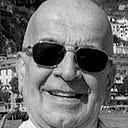The friar who “played crazy” not to die

Dominican friar, theologian, philosopher and poet, “played crazy” so as not to die. Born on 5 September 1568, he was arrested at the age of thirty-one. He had hatched a strange political-religious conspiracy in an attempt to free Calabria from Spanish misgovernment and then make it the center of a universal theocratic state.
The new century is upon us and the friar, as a prophet, outlines a new social organization without conflicts, corruption, injustice, poverty. During the trial he pretends to be crazy. He resists atrocious tortures that don’t kill him, he simulates crazy behavior while I dislocate his bones one by one. He thus manages to avoid the death penalty.
Tommaso Campanella (1568–1639) was born in Stilo, Calabria, on 5 September and entered the Dominican order at a very young age. He had been driven, rather than by a sincere vocation, by the desire to study. A curious and restless spirit, he goes to the sources of philosophical thought by reading Greek texts and the authors of Renaissance Neoplatonism, he is interested in the Galilean “new science” and is enthusiastic about the naturalism of Bernardino Telesio, from whom he borrows the idea of nature as a all organic animated.
Having come under suspicion of heresy because of his writings, he had already undergone, between 1591 and 1597, a series of trials, with mixed results. He remained in prison in Naples for twenty-seven years, in which he continued to write, among other things, a courageous Apology in defense of Galileo and poems of visionary force. Here is the Proem:
I, who was born from Senno and Sofia,
sagacious lover of good, true and beautiful,
the raving world rebels against itself
I recall my mother’s milk.
She nourishes me, her husband is fond of her;
and she takes me with her, agile and slender,
inside everything, both old and new,
so that I am a connoisseur and a blacksmith.
If the whole world is like our home,
flee, friends, the second schools,
who shows it to you with a finger, a grain and a detail.
If words advance things,
pain, pride and your ignorance
dilute from the fire that I stole from the sun.
A great program, no doubt about it. The poetry he proposes to himself and to the world of his time expresses his philosophical vision and his conception of man. In particular, the poet claims to be born from “Senno” and “Sofia”, or from wisdom and knowledge, and to be a lover of good, truth and beauty.
The world, on the other hand, is described as vain and rebellious against itself, and the poet recalls the mother’s milk, or knowledge of her, in order to understand the old and new world and become a connoisseur and blacksmith.
The poet invites his friends to flee from second schools, or from doctrines that do not lead to knowledge, and to dilute pain, pride and ignorance from the fire that he stole from the sun. The poem expresses Campanella’s vision of man as a rational and knowledgeable being, capable of understanding the world through wisdom and knowledge.
But his most famous work is “The City of the Sun”, a dialogue that fits into the current of utopian literature and which designs an ideal theocratic and communist state. From the depths of the black hole where he was thrown, he imagines a radiant city: a republic governed by wise men, in which private property and family are abolished, with a natural religion foreign to any confession, an egalitarian, happy and harmonious political-social organization.
The city, whose urban design the author describes in detail, is defended by seven walls, all frescoed to compose an immense encyclopedia of knowledge, and is dominated by the temple of the Sun. Having regained his freedom, Campanella will be advisor to the pope Urban VIII for astrological matters.
Threatened with further arrest by the Spanish, he fled to France, where he was welcomed kindly by Louis XIII, where he remained until his death. The Calabrian utopian deserves a place of honor among the group of madmen who have gone beyond reality. He “acted crazy”, but he certainly wasn’t.
